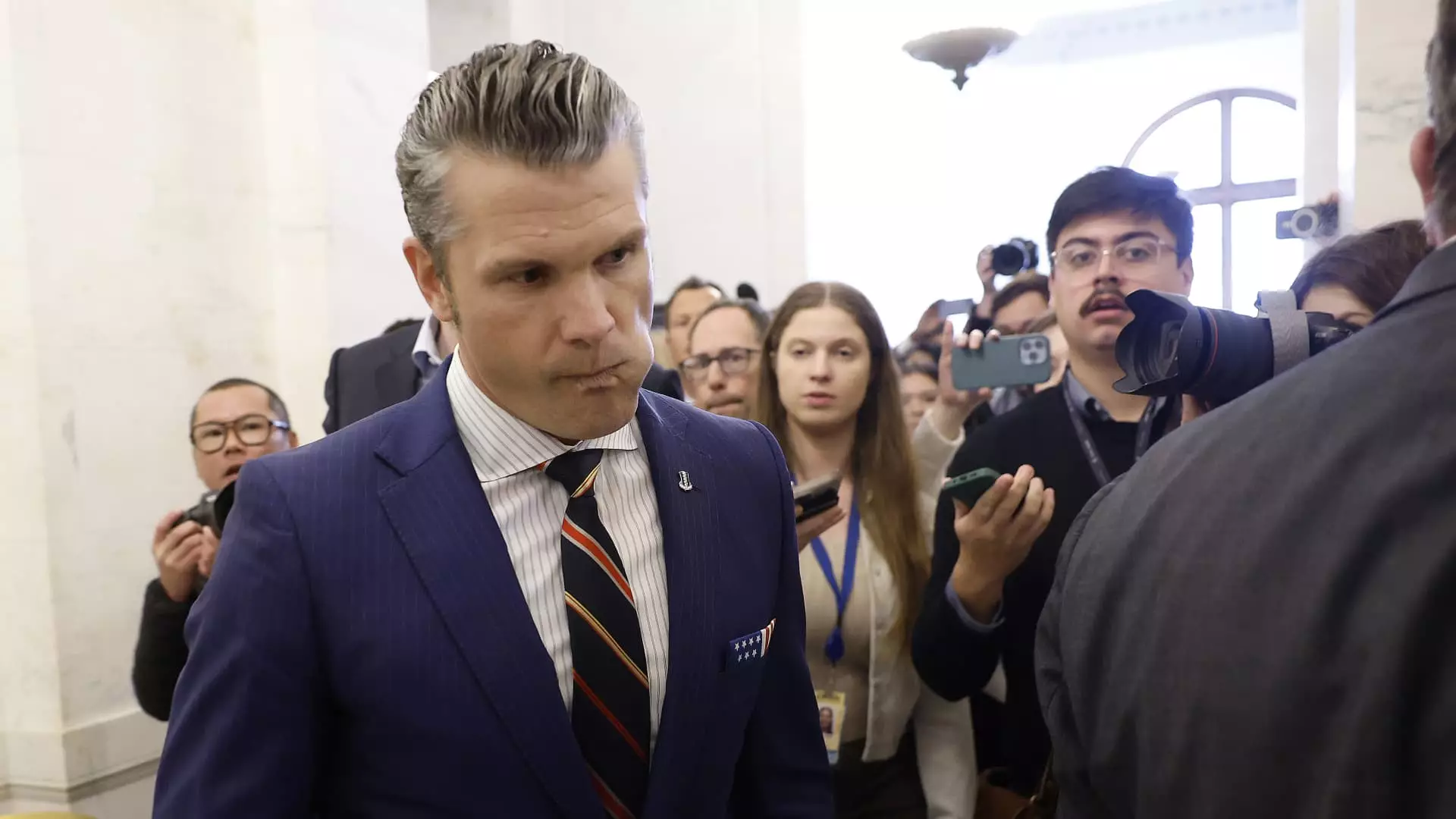The political arena is oftentimes a backdrop for shocking revelations and unearthing controversial figures, and the latest scrutiny falls upon Pete Hegseth, recently appointed by President-elect Donald Trump to lead the Pentagon. A recent article from *The New Yorker* has spotlighted serious allegations against Hegseth, detailing claims of alcohol abuse, sexual misconduct, and mismanagement in his capacity as the leader of veterans’ nonprofit organizations. The situation paints a troubling portrait of an individual poised for a significant role in national defense, raising critical questions about his suitability and the implications for leadership in such a vital department.
Published late Sunday, the report cites a whistleblower complaint lodged in 2015, implicating Hegseth’s conduct while at the helm of Concerned Veterans for America (CVA). The accusations are grave: Hegseth is alleged to have been repeatedly intoxicated at organizational events, raising alarms about his ability to perform effectively in a leadership position. Notable incidents include his reported inability to control himself while attempting to join dancers at a strip club, showcasing a potential pattern of reckless behavior and lack of professionalism.
Furthermore, the allegations extend beyond personal behavior to a troubling work culture described as hostile to female employees. Hegseth and his management team allegedly labeled female staffers into categories such as “party girls” and “not party girls,” reflecting a disturbing environment that could undermine the integrity and mission of veteran support organizations. Each detail surfacing from the complaint casts a dark shadow over Hegseth’s capabilities and ethics, questioning whether he possesses the moral compass necessary to lead in a Department of Defense role.
Another layer of the controversy layers on Hegseth’s financial management when he led Vets for Freedom (VFF). The organization reportedly fell into significant debt during his tenure, with donors feeling compelled to intervene to reclaim control. This mismanagement raises serious concerns about his administrative acumen and decision-making abilities, qualities that are crucial for anyone assuming a leadership position, particularly one impacting national security. The implications of financial irresponsibility in veterans’ services are particularly dire, as they can lead to a reduction in resources available to those who served the nation.
Hegseth’s exit from VFF, accompanied by salary reductions and a diminished title in tax filings, illustrates the fallout from these management failures. Such actions echo a broader narrative of irresponsibility that may have lasting effects on his career trajectory and public perception. With the well-being of veterans at stake, the ramifications of Hegseth’s past decisions cannot be overlooked or underestimated.
Adding yet another troubling facet to his public persona are the allegations of sexual assault investigated by police in Monterey, California, in 2017. The incident occurred amidst a Republican women’s convention and was inevitably charged with complications; at the time, Hegseth was navigating a contentious divorce. Although he has claimed the encounter was consensual and has faced no criminal charges, the backdrop of these circumstances paints a picture fraught with ethical dilemmas.
The investigation revealed conflicting accounts, with witnesses suggesting Hegseth was significantly intoxicated, raising credibility questions. Furthermore, the content and context of Hegseth’s monetary settlement with the woman involved only add fuel to a fire of speculation about illicit behavior. While Hegseth maintains his innocence, the surrounded circumstances complicate any claim of straightforwardness or transparency.
Implications for Leadership in National Security
Hegseth’s path to a critical defense role amidst such troubling allegations serves as a cautionary tale about the vetting processes for governmental appointments. The standards expected of Pentagon leadership demand not only a strong military background but also impeccable personal integrity and ethical judgment. Given the accumulated weight of allegations against Hegseth, the decision to appoint him raises numerous questions regarding the potential consequences for veterans, national security, and the credibility of U.S. leadership.
These emerging allegations against Pete Hegseth signal serious warning signs regarding his suitability as a candidate for the Department of Defense. As details unfold, the nexus of managerial misconduct, personal irresponsibility, and ethical complications demand scrutiny within public discourse—further emphasizing the necessity for transparent and responsible leadership in the realm of national security. As this story develops, it will be crucial for stakeholders to remain vigilant and informed, ensuring that the best interests of the military and the nation remain at the forefront.


Leave a Reply